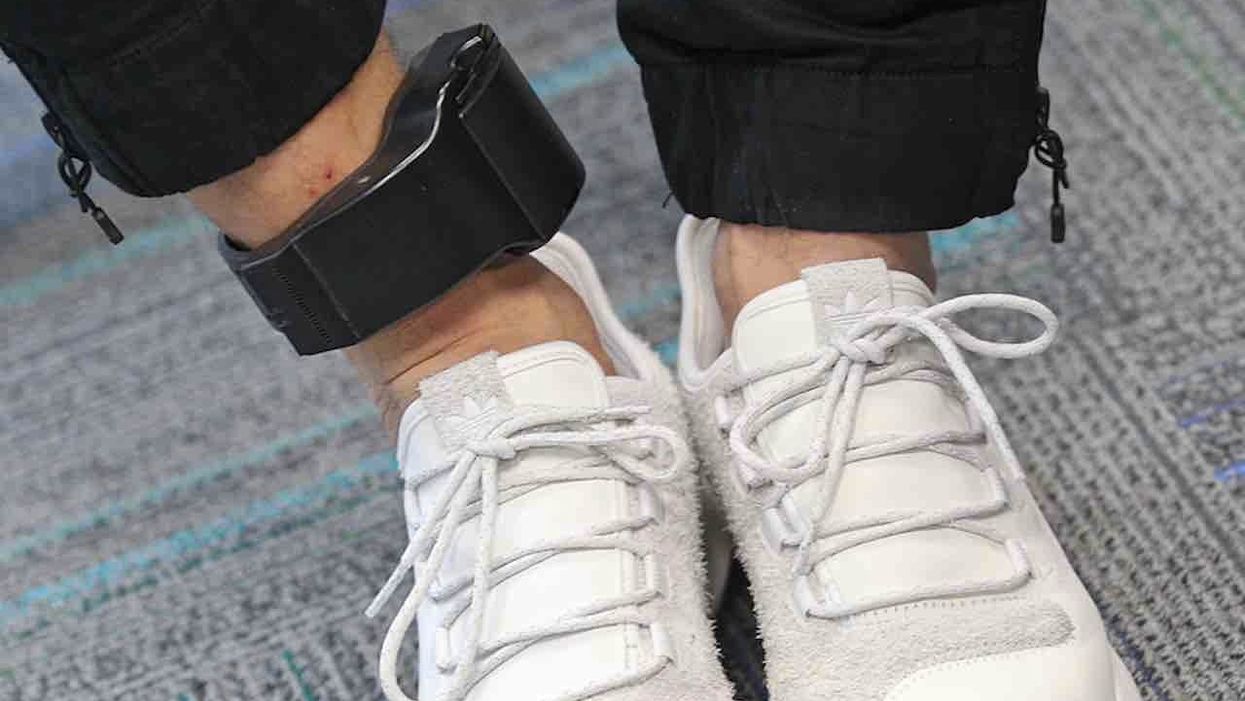
C.M. Guerrero/Miami Herald/Tribune News Service via Getty Images

'We don't want to take away people's freedoms, but at the same time we have a pandemic'
Some state officials are looking at the possibility of using house arrest monitoring devices — such as ankle bracelets or location-tracking apps — to enforce quarantines on those infected with COVID-19, Reuters reported.
The outlet said the technology has been deployed in isolated circumstances over the last several weeks but that widespread use is on hold due to legal issues — specifically whether or not officials can electronically track those who haven't broken the law.
Hawaii considered sweeping use of GPS-enabled ankle bracelets or smartphone tracking apps to enforce stay-at-home orders for those arriving on the islands by plane, Reuters said, citing Ronald Kouchi, president of the Hawaii state Senate.
Kouchi told the outlet officials were concerned many travelers were disobeying the state's 14-day quarantine order but that the idea of widespread use of tracking devices was tabled when Hawaii attorney general's office raised concerns.
"America is America," Kouchi told Reuters. "There are certain rights and freedoms."
Hawaii's COVID-19 Joint Information Center added to the outlet that "various ideas being evaluated for tracking those under mandatory quarantine in response to the COVID-19 pandemic are right now just that, ideas."
Other states have used tracking devices but not in a widespread way, Reuters said.
Judges recently ordered a handful of people in Louisville, Kentucky, to wear ankle bracelets for repeatedly refusing to isolate themselves after being in contact with coronavirus patients. Those devices were manufactured by Colorado-based SCRAM Systems, Reuters said, citing Amy Hess, the city's chief of public services. While she'd prefer not using them, she added to the outlet that state law allowed their use to protect public health.
"We don't want to take away people's freedoms, but at the same time we have a pandemic," Hess told Reuters.
More from the outlet:
In West Virginia's capital, Charleston, Kanawha County Sheriff Mike Rutherford told Reuters his force had leased 10 additional location-monitoring ankle bracelets from GEO Group Inc. at the outset of the epidemic "to be on the safe side," although he said they've so far just sat on the shelf.
Industry executives including Shadowtrack Technologies Inc. President Robert Magaletta, whose Louisiana-based company supplies nearly 250 clients across the criminal justice system, said they had fielded calls from state and local governments about repurposing their tools for quarantine enforcement, although they wouldn't name the prospective buyers.
Kris Keyton, of Arkansas-based E-Cell, said he had recently been approached by a state agency that wanted to adapt his detainee-tracking smartphone app for quarantine enforcement.
Keyton told Reuters the agency wanted only cosmetic changes, including swapping out the word "client" — E-Cell's term for arrestees — with the word "patient."
"They just wanted to reskin our app," he added to the outlet.
Magaletta told Reuters that the prospect of widespread use of such tracking devices for COVID-19 enforcement may be a problem in the U.S. and that he's a lot more comfortable with the technology for convicted criminals.
"Can you actually constitutionally monitor someone who's innocent?" he asked the outlet. "It's uncharted territory."